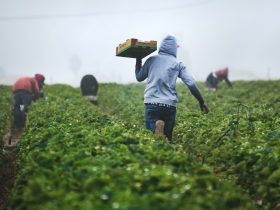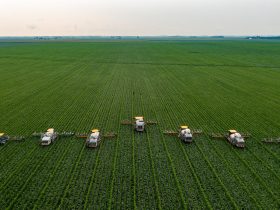Investing in sustainable food production is not only a financially sound decision but also an ethical one. As the demand for sustainable and ethically produced food continues to grow, investors are faced with various ethical dilemmas. Balancing profitability with ethical considerations can be challenging, but it is crucial for creating a sustainable and responsible food system. In this article, we will explore some of the ethical dilemmas that arise in investments in sustainable food production and discuss strategies for navigating them.
Ethical Dilemmas in Sustainable Food Production Investments
- Land Use and Deforestation: One of the key ethical dilemmas in sustainable food production investments is the impact on land use and deforestation. Agriculture is a major driver of deforestation, particularly in regions like the Amazon rainforest. Investors must consider the environmental consequences of land conversion for agriculture and seek investments that promote sustainable land use practices, such as agroforestry or regenerative agriculture. Agroforestry is a sustainable land use practice that combines trees and crops in the same area. It not only helps to restore and conserve forests but also provides multiple benefits such as improved soil health, increased biodiversity, and enhanced carbon sequestration. Regenerative agriculture, on the other hand, focuses on restoring soil health through practices like cover cropping, crop rotation, and minimal tillage. These approaches minimize the need for deforestation and promote the long-term sustainability of food production.
- Water Usage and Conservation: Another ethical dilemma is the responsible use and conservation of water resources. Agriculture is a significant consumer of water, and unsustainable irrigation practices can lead to water scarcity and environmental degradation. Investors should prioritize investments that promote efficient irrigation systems, water conservation techniques, and sustainable water management practices. Water-efficient technologies, such as drip irrigation and precision agriculture, can help minimize water waste and optimize water usage in agricultural operations. Additionally, investing in projects that focus on rainwater harvesting and water recycling can contribute to sustainable water management. By implementing these strategies, investors can address the ethical concerns related to water usage and contribute to the conservation of this precious resource.
- Chemical Inputs and Pesticide Use: The use of chemical inputs and pesticides in agriculture raises ethical concerns related to human health, environmental pollution, and biodiversity loss. Investors should consider investments in organic farming or integrated pest management systems that minimize the use of synthetic chemicals and prioritize natural and sustainable pest control methods. Organic farming avoids the use of synthetic pesticides and fertilizers, relying instead on natural inputs and practices that enhance soil health and biodiversity. Integrated pest management (IPM) combines various pest control strategies, such as biological control, crop rotation, and habitat manipulation, to minimize the reliance on chemical pesticides. By supporting these approaches, investors can promote sustainable and environmentally friendly farming practices.
- Animal Welfare: Investments in sustainable food production often involve animal farming. Ethical investors should prioritize animal welfare considerations, such as providing adequate living conditions, access to outdoor spaces, and humane treatment throughout the production process. Investments in alternative protein sources, such as plant-based or cultured meat, can also be considered ethical alternatives. Animal welfare standards vary across different farming systems. Investors should seek investments that adhere to high animal welfare standards, such as those outlined by animal welfare certification programs. These programs ensure that animals are raised in humane conditions and are treated with respect throughout their lives. Additionally, investing in plant-based or cultured meat companies can contribute to reducing the environmental impact of animal agriculture while still meeting the demand for protein.
- Fair Trade and Labor Conditions: Ensuring fair trade practices and promoting good labor conditions is another ethical dilemma in sustainable food production investments. Investors should support investments that prioritize fair wages, safe working conditions, and respect for workers’ rights. Certification schemes, such as Fairtrade or Rainforest Alliance, can guide in identifying investments that meet these ethical standards. Fairtrade certification ensures that farmers and workers receive fair prices for their products, enabling them to improve their livelihoods and invest in sustainable practices. Similarly, the Rainforest Alliance certification promotes social and environmental sustainability in agriculture, including fair labor practices. By investing in companies that prioritize fair trade and good labor conditions, investors can contribute to a more equitable and sustainable food system.

Navigating Ethical Dilemmas
- Thorough Due Diligence: Conducting thorough due diligence is essential to navigate ethical dilemmas in sustainable food production investments. Investors should research and assess the environmental and social impacts of potential investments, including their track record in sustainability, labor practices, and commitment to ethical standards. This information can help investors make informed decisions aligned with their ethical values. It is important to analyze the company’s sustainability reports, environmental impact assessments, and any certifications they hold. Engaging with the company directly and asking specific questions about their practices can also provide valuable insights. By gathering as much information as possible, investors can better understand the ethical implications of their investments and make choices that align with their values.
- Engage with Stakeholders: Engaging with stakeholders, including local communities, farmers, and advocacy groups, can provide valuable perspectives on the ethical considerations of sustainable food production investments. By actively listening to their concerns and involving them in the decision-making process, investors can gain a deeper understanding of the potential impacts of their investments and identify areas for improvement. Stakeholder engagement can take various forms, such as community consultations, partnerships with local organizations, or participation in industry forums. This collaborative approach ensures that the voices of those affected by the investments are heard and taken into account, leading to more responsible and sustainable outcomes.
- Support Innovation and Research: Investing in research and innovation is crucial for addressing ethical dilemmas in sustainable food production. By supporting companies and projects that focus on developing sustainable farming practices, alternative protein sources, and technological advancements, investors can contribute to the transformation of the food system. Research and innovation play a key role in finding solutions to complex challenges, such as reducing the environmental impact of agriculture, improving animal welfare, and enhancing resource efficiency. By investing in these areas, investors can support the development and implementation of ethical and sustainable practices in the food industry.
- Collaborate and Share Best Practices: Collaboration among investors, companies, and industry stakeholders is essential for driving positive change in sustainable food production. By sharing best practices, lessons learned, and success stories, the industry can collectively work towards a more ethical and sustainable food system.Investors can actively participate in industry networks, conferences, and initiatives focused on sustainable food production. These platforms provide opportunities to learn from others, share experiences, and collaborate on innovative solutions. By working together, investors can amplify their impact and drive systemic change in the industry.
- Measure and Monitor Impact: Regularly measuring and monitoring the impact of investments is crucial for ensuring accountability and driving continuous improvement. Investors should establish clear metrics and indicators to assess the environmental, social, and economic performance of their investments. Impact measurement tools, such as the Environmental, Social, and Governance (ESG) framework, can help investors track and evaluate the sustainability performance of their portfolios. By monitoring key indicators, investors can identify areas for improvement, set targets, and make informed decisions to maximize their positive impact.

































